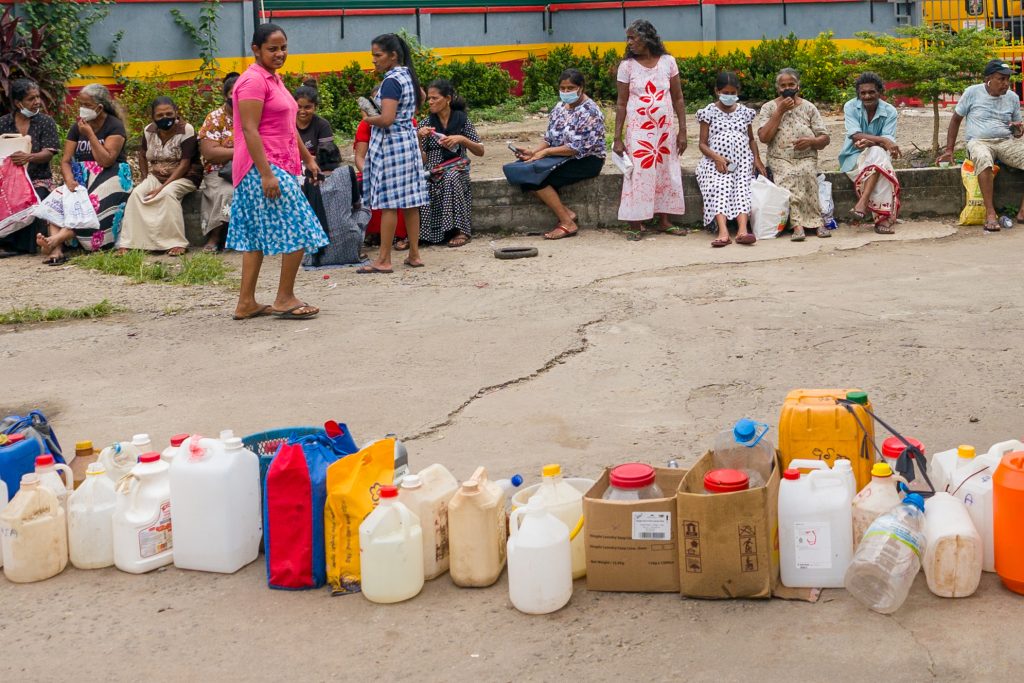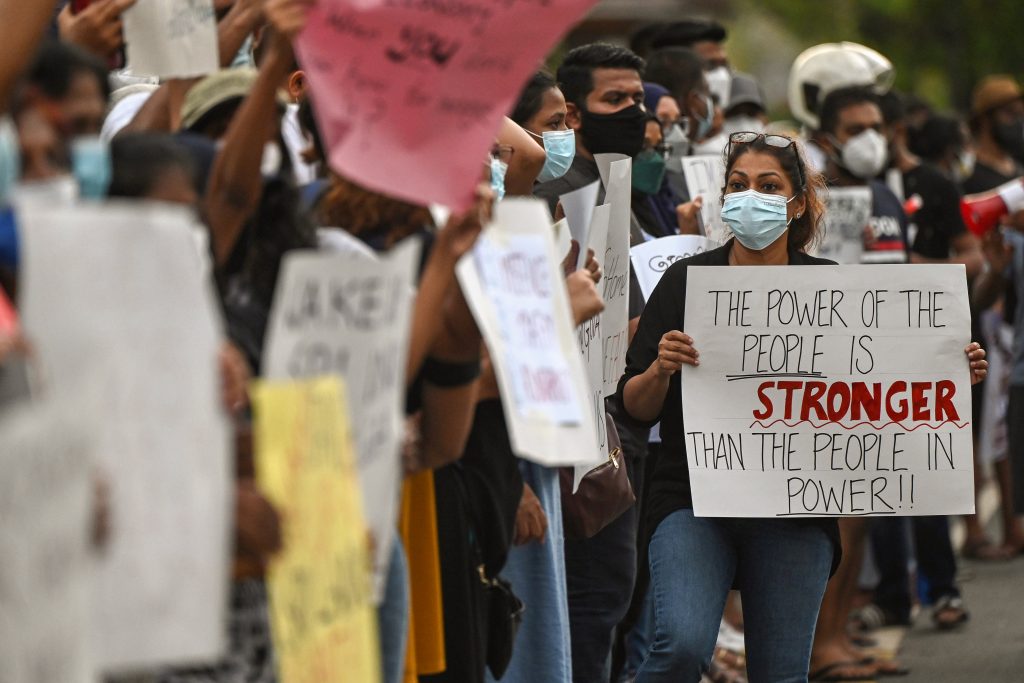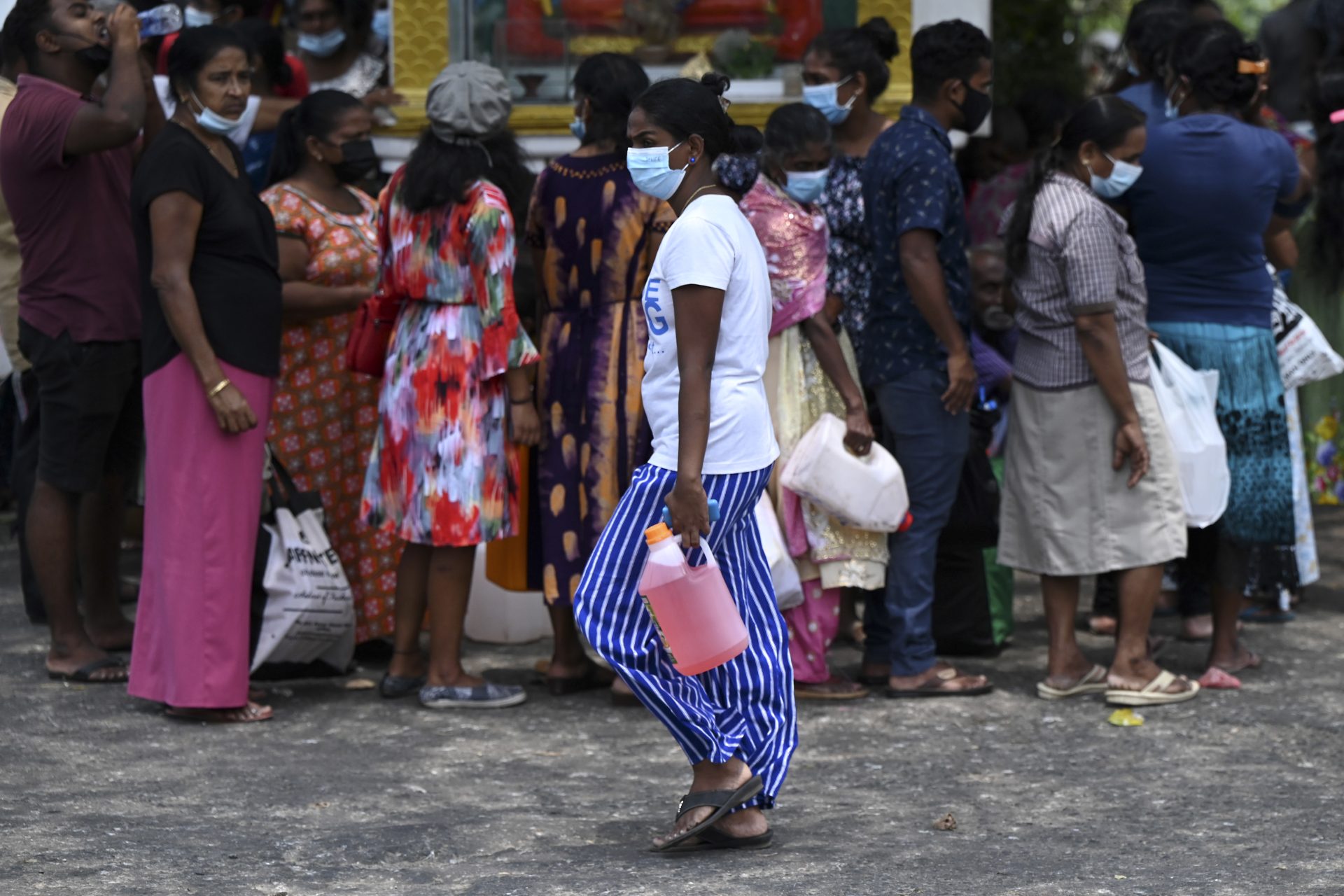Sri Lanka’s highest Catholic Church leader called for an investigation into the reported decline in the country’s national reserves amidst the ongoing economic crisis in the South Asian nation.
“The disappearance of the gold will have to be investigated someday. People need to know who wasted this money,” said Cardinal Malcolm Ranjith of Colombo.
Speaking during the celebration at the Feast of the Sacred Heart of Jesus at the Colombo North Teaching Hospital on June 24, the prelate said an investigation must be done to look into who were responsible.
“Who took these incompetent decisions? Who supported them?” said the prelate.
“For example, who decided to suddenly ban the import of chemical fertilizer? Who was behind it? The Agricultural sector of the country collapsed completely because of that decision. That decision is a reason for the situation that we are facing today,” added Cardinal Ranjith.
In his speech, the prelate stressed that qualified people should be appointed to responsible positions in government to head agencies such as the Treasury and the Finance ministries.
The cardinal also appealed to the international community to help Sri Lanka with medicine and hospital equipment.
Sales of fuel suspended
The Sri Lankan government has announced a two-week halt to all fuel sales except for essential services starting this week and called for a partial shutdown.
The South Asian nation is facing its worst economic meltdown since gaining independence from Britain in 1948, and has been unable to finance even the imports of essentials since late last year.
As fuel reserves hit rock bottom with supplies barely enough for just one more day, government spokesman Bandula Gunawardana said the sales ban was to save petrol and diesel for emergencies.
He urged the private sector to let employees work from home as public transport ground to a halt.
“From midnight today, no fuel will be sold except for essential services like the health sector, because we want to conserve the little reserves we have,” Gunawardana said in a pre-recorded statement.
He apologized to consumers for the shortages: “We regret the inconvenience caused to the people.”

Electricity shock
The sudden fuel ban came as the loss-making state-run electricity monopoly asked for a massive price increase for its poorest customers.
The Ceylon Electricity Board (CEB) lost 65 billion rupees (US$185 million) in the first quarter and sought a nearly tenfold price hike for the heavily-subsided smallest power consumers, the Public Utilities Commission of Sri Lanka (PUCSL) said.
Currently, anyone using less than 30 kilowatts a month pays a flat 54.27 rupees (US$0.15), which the CEB sought to raise to 507.65 rupees (US$1.44).
“A majority of the domestic consumers will not be able to afford this type of steep increase,” PUCSL chairman Janaka Ratnayake told reporters in Colombo.
“Hence we proposed a direct subsidy from the Treasury to keep the increase to less than half of what they have asked.”
As part of measures to ease the forex crisis that led to the energy crunch, the CEB will be allowed to charge users who earn foreign currency, such as exporters, in dollars.
The move is aimed at helping the electricity utility collect dollars to finance imports of oil and spare parts it desperately needs, but is unable to secure because of the country’s forex crisis.
The country is also facing record high inflation and lengthy power blackouts, all of which have contributed to months of protests — sometimes violent — calling on President Gotabaya Rajapaksa to step down.
Last week, all government schools were shut down and state institutions operated with skeleton staff to reduce commuting and preserve oil.
The state sector shutdown was meant to end this week, but it is now being extended till July 10, when Gunawardana promised to restore fuel supplies.

Broken promise
On Sunday, the government promised it will implement a token system to ration distribution of limited fuel stocks, but it failed to take off.
There have been long queues outside the few pumping stations which still had supplies.
Sri Lanka is seeking cheap oil from Russia and Qatar.
Earlier this month, the United Nations launched an emergency response to the island’s unprecedented economic crisis, feeding thousands of pregnant women who were facing food shortages.
Four out of five people in Sri Lanka have started skipping meals as they cannot afford to eat, the UN has said, warning of a looming “dire humanitarian crisis” with millions in need of aid.
Sri Lanka defaulted on its US$51 billion foreign debt in April, and is in talks with the International Monetary Fund for a bailout. – with a report from Agence France Presse






